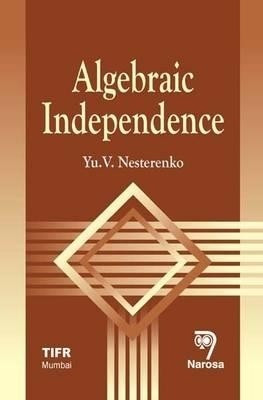Algebraic independence
In abstract algebra, the algebraic independence is a property of elements of a transcendental field extension, which indicates that these elements satisfy no nontrivial polynomial equation with coefficients in the base body.
Definition
Let be a field extension. Be elements of L. Is there a different from zero polynomial polynomial f in n variables and coefficients in K, ie f, so that
Then called algebraically dependent.
If there is no such polynomial, then the elements are called algebraically independent.
This term can be extended to infinite subsets M of L by a set M is called algebraically dependent if it has an algebraically dependent finite subset.
With polynomials are also obtained the dependence of the inverse, for example,, X = e and Y = 1 / e in the polynomial relation XY = 1
Each above the ground field K algebraic element is algebraically dependent, because it satisfies a polynomial over K. ( Thus, as the null vector of a vector space alone is linearly dependent. )
Similar to the approach used in vector spaces of the linear combination ( linear homogeneous polynomial ), which provides the concept of linear independence, it is sometimes considered in algebraic field extensions combinations of transcendental elements, ie arbitrary ( fractional rational ) polynomials with coefficients in the base body.
A maximum system algebraically independent elements is called transcendence basis, their cardinality is called transcendence degree of the extension.
Examples
- The real numbers 1 and ( with the circle constant pi) are algebraically dependent over the rational numbers, because they meet with 1 and the polynomial equation.
- Equally and the imaginary unit algebraically dependent on, since the same with or. This is of course the fact that the quantity alone is algebraically dependent. Although and are algebraically dependent, belongs neither to nor to.
Examples of complex numbers are algebraically independent over are harder to find, although it has been proven infinitely many (or more precisely continuum many ) are algebraically independent over complex numbers. But one suspects that, and it is. Easy it is, however, to find examples in other bodies:
- In the rational function field in two indeterminates X and Y over the rational numbers, the elements X and Y are algebraically independent, since, by definition, this body is the only polynomial in two variables, which at the point (X, Y ) is equal to 0, the zero polynomial.
- A larger example is found in the function body. Here all elementary symmetric polynomials are algebraically independent.










